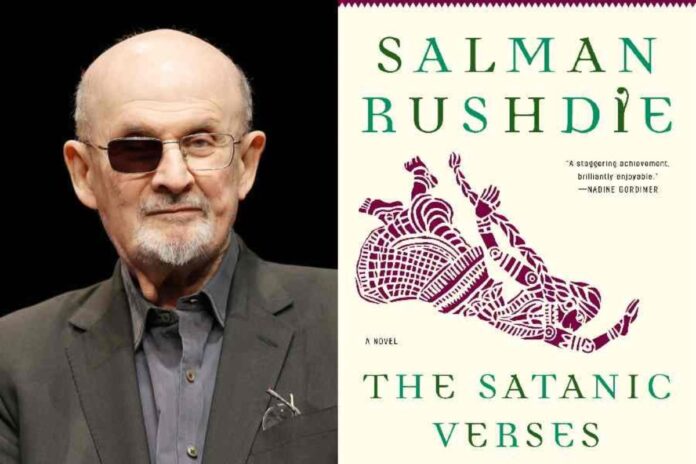Salman Rushdie’s ‘The Satanic Verses’ has made a historic return to India, marking the end of a 36-year-long ban imposed by the Rajiv Gandhi government. The novel, which has sparked global debates on free speech and religious sentiments, is now available at select bookstores in Delhi-NCR.
A Controversial Return
The reappearance of Salman Rushdie’s ‘The Satanic Verses’ in Indian bookstores has reignited discussions around its controversial history. Banned in 1988, the book was deemed blasphemous by numerous Muslim organisations worldwide, leading to widespread protests. Despite the backlash, its limited stock is now being sold at Bahrisons Booksellers, priced at ₹1,999.
According to Rajni Malhotra, owner of Bahrisons Booksellers, the response has been overwhelmingly positive. “It has been a few days since we got the book, and the sale has been good,” she stated. The bookstore’s announcement on social media described the novel as groundbreaking and provocative, lauding its imaginative storytelling and bold themes.
Legal Developments That Cleared The Path
In November, the Delhi High Court closed proceedings on a petition challenging the ban. The court stated that the government had failed to produce the notification enforcing the prohibition, leading to the presumption that it no longer existed.
The original ban, implemented on October 5, 1988, came under scrutiny when authorities failed to submit the requisite documentation. The court’s statement read, “We have no other option except to presume that no such notification exists, and therefore, we cannot examine the validity thereof.”
The Global Outcry And Fatwa
The controversy surrounding the book extended beyond India. Shortly after its publication, Iran’s Supreme Leader Ayatollah Ruhollah Khomeini issued a fatwa calling for the assassination of Rushdie and his publishers. This forced Rushdie into hiding for nearly a decade.
The impact of the fatwa was severe, with violent repercussions including the murder of the book’s Japanese translator, Hitoshi Igarashi, in 1991. Rushdie himself narrowly survived an attack in August 2022, when he was stabbed during a lecture in New York.
Reader Reactions
The availability of ‘The Satanic Verses’ has evoked mixed responses. While some celebrate its literary and historical significance, others question its steep price. Bala Sundaresan, a tech entrepreneur, expressed reservations about paying ₹1,999 for the book. “I might wait for an Indian edition. I’m curious because of the controversy, not because I’m a Rushdie fan,” he said.
Meanwhile, literature student Rashmi Chatterjee plans to purchase the novel for its role in India’s fight against censorship. “You can’t ignore its significance in literary history. It stands as an argument against suppressing creative expression,” she remarked.
A Landmark In Free Speech
The return of Salman Rushdie’s ‘The Satanic Verses’ is not just a literary milestone but a pivotal moment in the discourse on free expression and artistic freedom in India. While other major bookstores like Midland Book Shop and Om Book Shop have chosen not to stock the book, its presence in Bahrisons reflects a shift in the cultural landscape.
As debates around censorship and creative liberty continue, the re-entry of this iconic novel underscores its enduring relevance in global literary and political conversations.

